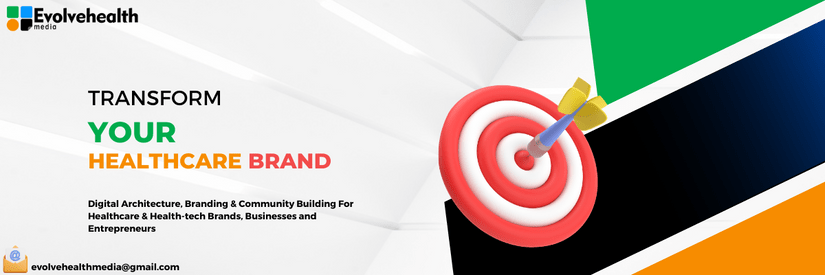The current healthcare trends necessitate creative and adaptable methods for improving results and decreasing shortfalls.
Even with major progress in science & technology, the healthcare system continues to suffer from widespread inadequacies, such as unequal availability, dissatisfied customers, and rising costs.
What Is Creative Thinking?

The invention of new or enhanced products/services/processes to augment a specific value has been defined as creative thinking.
In healthcare, creative thinking is defined as a new technology, service, or care process that seeks to provide advantages over the existing methods due to their usefulness and suitability.
Although there is a need to improve the system by shifting the focus from diagnoses and conditions to patient-centered care, creative thinking tends to occur more quickly in other industries than in healthcare.
To overcome difficulty when incorporating innovative thinking in the health sector, a few problems must be resolved today — from funding needs to the use of modern techniques, and many others.
Furthermore, focusing on quick (3–5 years) instead of protracted (>10 years) progressions have the sole effect of producing erroneous projections while restricting disruptive innovation.
To increase productivity and resolve deficiencies, the health care staff must be innovative. Innovation is especially difficult in public health because problems are often complicated, evolving, and context-specific, and they can spring up faster than expected, necessitating a quick and effective reaction.
Nevertheless, contemporary academic approaches in health care and public health provide only a limited amount of training in innovative solutions and ideas. Thus, traditional public health education can be supplemented with creative, non-linear, flexible, and premium methods or styles.
In the traditional syllabus for nurturing and teaching health care professionals, the current curriculum concentrates on short-term instead of long-term advancement that do not formalize the translation from theory to real-life innovative solutions that can actually solve the myriad of problems plaguing the society. This deficiency has made it difficult for healthcare professionals [and stakeholders] to adequately prepare for the future of healthcare.
Recommended Reads:
Innovation Always Wins
On Nursing Innovation: Relationships, Innovation & Leadership
How does Creative Thinking apply to Healthcare?
Creative thinking assists the healthcare sector in becoming proactive rather than reactive. Healthcare is no longer contained within the confines of a healthcare facility.
Human health monitoring is now a 24-hour activity, with apps/software and wearables/gadgets becoming an essential part of life as we know it.
Ideation – a phase of creative thinking that is an adaptive way of detecting innovative solutions – is what allows us to stay current with this breakneck pace.
As the healthcare industry evolves, there are also unique challenges that emanate from its development.
Improved healthcare, for example, is a significant factor in increased longevity, posing complex challenges in dealing with an aging population. Applying creative thinking precepts does not necessitate the competency of a designer. Thus, the important components of incorporating creative thinking do not require rocket science, but are solely focused on:
- Compassion for the user, who is most likely a patient or a caregiver.
- Collaborations that span multiple disciplines.
- Timely inventing of the technology.
- Using design thinking (UX) methods and techniques allow healthcare professionals to rethink their perspectives – they start to see their patients as humans first, and patients secondarily.
The invention of new or enhanced products/services/processes to augment a specific value has been defined as creative thinking.
Transforming Healthcare Through Innovation and Entrepreneurship

Creative thinking, innovative thinking, and entrepreneurship are critical concepts for the global advancement of healthcare.
It is essential to consider that in healthcare, creative thinking is the first step toward innovation, which can occur anywhere and at any level of an organization.
Innovation is essential for healthcare now and in the future, especially with an aging population, an increasing prevalence of chronic diseases and illnesses, and modifications in inpatient needs necessitating more individualized patient care. Scientific and technological advancements are at the heart of healthcare innovation.
As a result, healthcare leaders must create an atmosphere that encourages and enables team members to be creative and innovative, while also nurturing the entrepreneurial spirit and applying primary business precepts to transform new ideas into financially successful medical advances that will transform the world of healthcare.
Over the last few decades, substantial inventions in healthcare have been developed to improve life expectancy and quality of life. The progression of healthcare innovation is a reaction to the crucial needs of patients that can emerge over time or as a consequence of certain unparalleled situations that arise quickly and require immediate attention.
This could be due to an aging population and increased need to handle specific chronic diseases, or it could be due to an unprecedented global pandemic [like Covid-19]. Understanding technology, as well as the various innovative activities and growth opportunities, is critical in the field of healthcare.
Healthcare organizations that assist and encourage their employees’ innovative capabilities and engage in open advancement can lead to a more effective innovation process that results in new product lines, offerings, methods, innovations, and delivery systems that add value to patients and improve the healthcare system.
It is a useful link between scientific and technological advances and trying to meet the diverse needs of stakeholders that results in successful innovations that add value to healthcare.
Why Is HealthCare Entrepreneurship The Future?
Entrepreneurship Fosters Health-Care Innovation
Over the last decade, the healthcare industry has made major progress. These developments have mainly been in the areas of improved diagnosis and therapy, system cost-effectiveness, and IT integration.
The demand for qualified specialists has increased as a result of these breakthroughs. Currently, the healthcare sector requires intelligent practitioners who can think outside the box when it comes to quick diagnosis and therapy.
Entrepreneurs are being given special roles in medical centers all over the world. This is due to the healthcare system’s awareness of the significance of employing clinicians who can make a significant contribution to a broad range of practice.
Patients can now be reached directly through consumer technology
Patients are being motivated in novel ways as a result of remarkable access to data. The prevalence of wearables is causing a dramatic shift in how patients learn about and track their health.
Currently, these innovations affect only a small percentage of the population. However, as they keep improving and customer orientation grows, there will be a lot of great prospects for innovators.
In healthcare, creative thinking is defined as a new technology, service, or care process that seeks to provide advantages over the existing methods due to their usefulness and suitability.
Conclusion
Creative thinking and entrepreneurship are now essential components of medical practice. All of these developments herald the start of a thrilling new era for entrepreneurs, technologists, shareholders, healthcare professionals, and, not least, patients.

Transform your brand. Find out more…






Drop Your Comment